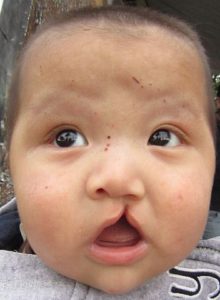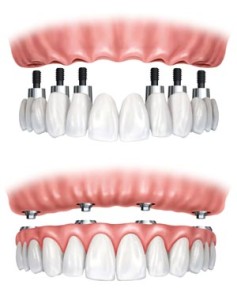When Does Dental Care Become Medical Care?
Dental work becomes medical work when serious problems or diseases arise. Surgery to remove teeth, reconstructive surgery, or surgery to remove a tumor due to oral cancer, are reasons why dental care would fall under medical care. Knowing what kind of dental work falls under the medical category can help you to understand if health insurance will or won’t pay for the procedure.
Anesthesia
Serious oral surgery usually requires some use of anesthetics during or after the procedure. Anesthetics are usually deemed necessary for the patient during surgery so most health insurances will cover this part of the surgery. Check the wording of your insurance policy to see if you are covered for more than just a local anesthetic.
Wisdom Teeth and Jaw Surgery
Your wisdom teeth may be partially covered by your health insurance. Usually qualifying cases that fall under the Medical category include:
- Impacted Wisdom Teeth – soft tissue or bone
- Erupted Wisdom Teeth
- Wisdom teeth that are not impacted rarely fall under the medical category.
Jaw surgery that is medical and not dental usually is caused by a disease, defect or accident. Jaw surgery is necessary when bones have been broken by an accident and need to be corrected. Your dentist might also recommend orthognathic surgery to correct issues that can not be treated with braces such as:
- Cleft Palate – which can cause, chewing and speaking issues
- Facial and Skeletal Deformities – that can cause issues with chewing, obstruction of airways and Sleep Apnea.

Oral Cancer
When cancer is detected in the mouth there are many different ways that your health professional can get rid of the tumor before it spreads to the rest of the body. If the cancer is detected early enough a medical doctor will perform some of the following surgeries, depending on what type of oral cancer is affecting the area:
- Tumor Resection – this surgery is designed to remove the entire tumor from the area. If the tumor is small enough, the tumor can be cut and removed from the mouth. For a larger tumor, the surgeon may need to be more invasive and make the incision in the jawbone or neck.
- Maxillectomy or Partial Maxillectomy – this surgery requires that part or all of the hard palate, the front of the roof of the mouth is removed. Your surgeon will refer you to a specialized dentist or a prosthodontist to make a prosthetic to fill the hole left after surgery.
- Full or Partial Mandible Resection -When a tumor has grown into the jawbone this procedure may be needed. The surgeon will X-ray the jaw to see how large the tumor is, if the tumor is small enough or no evidence of cancer cells are found, only a small amount of the jaw will be removed. If the tumor is found to be large or cancer cells are found in the jawbone, the whole jaw may need to be removed.
- Dental Implants and Extractions – Radiation from the chemotherapy used to treat oral cancer can have some major impacts on teeth. Teeth that have been exposed to radiation can become unhealthy and may need to be removed to avoid the risk of serious problems in the future. If your jawbone has been removed and replaced by another bone from part of your body, dental implants will be placed into the new bone. Prosthetic teeth will be able to attach to these implants during reconstructive surgery.
 Envision Dental wants to make sure you feel comfortable and stay informed for any medical procedures you may have done. Feel free to review our pre- and post-operative instructions, to ensure you have a smoother recovery process. For any concerns or more information, contact us at (386) 256-4786.
Envision Dental wants to make sure you feel comfortable and stay informed for any medical procedures you may have done. Feel free to review our pre- and post-operative instructions, to ensure you have a smoother recovery process. For any concerns or more information, contact us at (386) 256-4786.
